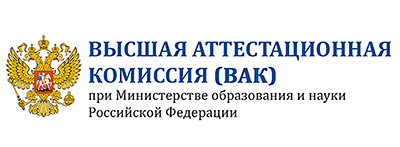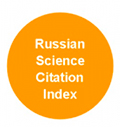Результаты Всероссийской переписи населения 2021 года в свете статистики текущего учета населения и переписей предыдущих лет
Аннотация
Перепись населения раунда 2020 г. прошла в России в октябре-ноябре 2021 г. и имела ряд отличий от переписей 2002 и 2010 г.: 1) перепись 2021 г. была проведена в разгар пандемии коронавирусной инфекции; 2) россияне впервые могли принять участие в переписи, заполнив электронные переписные листы в сети Интернет; 3) критический момент переписи приходился не на первый день проведения переписи; 4) период проведения переписи составил один месяц. Кроме того, опросы показали высокую долю населения, не принявшего личного участия в переписи. Используя опубликованные результаты переписи населения, в данной статье мы попытались оценить влияние особенностей проведения переписи 2021 г. на точность ее результатов, а также ответить на вопрос, возможна и необходима ли корректировка демографических показателей за 2011-2021 гг. с учетом данных переписи 2021 г. Проведенный нами анализ показал, что в переписи 2021 г. как минимум сведения о каждом 6-м жителе России были взяты из административных источников, что привело к большим расхождениям в численности населения во всех половозрастных группах на основании переписи населения 2021 г и текущих оценок численности населения. Наиболее выражено это расхождение в детских (0-14 лет) и пожилых (80 лет и старше) возрастах, что говорит о наличии проблем в административных данных для этих возрастов. В целом, мы полагаем, что точность данных о населении по переписи 2021 года не ниже, чем полученных в переписях 2002 и 2010 гг., однако, результаты переписи 2021 г. должны быть скорректированы.
Скачивания
Литература
Андреев Е.М. (2012). О точности результатов российских переписей населения и степени доверия к разным источникам информации. Вопросы статистики, 11, 21-35.
Богоявленский Д. (2008). Все ли российские народы верно посчитали? Демоскоп Weekly, 319-320. http://www.demoscope.ru/weekly/2008/0319/tema01.php
Кузина Л. (2023). Кто и почему не пользуется интернетом в России? ИСИЭЗ НИУ ВШЭ. https://issek.hse.ru/news/810217750.html
Левада-центр (2021). Участие россиян в переписи. https://www.levada.ru/2021/12/21/uchastie-rossiyan-v-perepisi/
Мкртчян Н.В. (2011). Динамика населения регионов России и роль миграции: критическая оценка на основе переписей 2002 и 2010 гг. Известия РАН. Серия географическая, 5, 28-41.
Папанова Е.К., Школьников В.М., Андреев Е.М., Тимонин С.А. (2017). Высокая продолжительность жизни москвичей после 80 лет – реальность или статистический артефакт? Успехи геронтологии, 30(6), 826-835.
Перепись населения глазами переписчиков (2003). Демоскоп Weekly, 97-98. http://demoscope.ru/weekly/2003/097/perepis02.php
Пьянкова А.И. (2012). Должно ли быть обязательным участие в переписи населения? Вопросы статистики, 10, 22-34.
Пьянкова А.И. (2013). Зарубежный опыт проведения переписей населения через Интернет. Вопросы статистики, 5, 46-53.
Росстат (2004). Всероссийская перепись населения 2002 года. http://www.perepis2002.ru/
Росстат (2012). Всероссийская перепись населения 2010 года. https://gks.ru/free_doc/new_site/perepis2010/croc/perepis_itogi1612.htm
Росстат (2023). Всероссийская перепись населения 2020 года. https://rosstat.gov.ru/vpn_popul
Чудиновских О.С. (2021). К вопросу о создании регистра населения и использовании административных данных для нужд государственной статистики. Вопросы статистики, 28(1), 5-17. https://doi.org/10.34023/2313-6383-2021-28-1-5-17
























